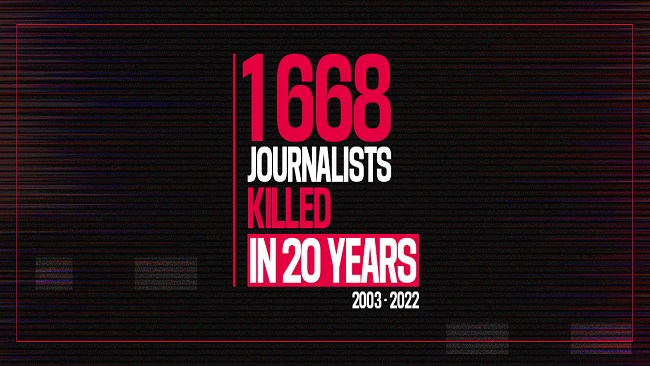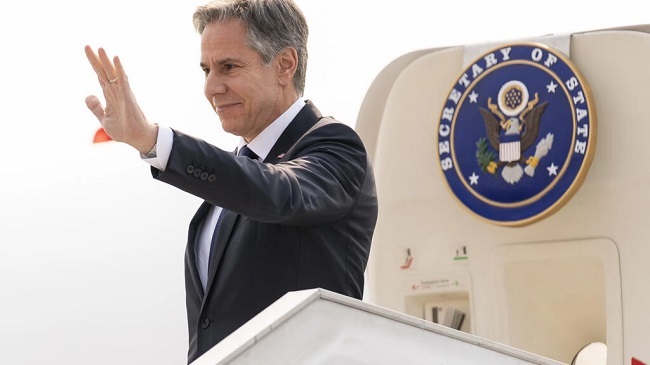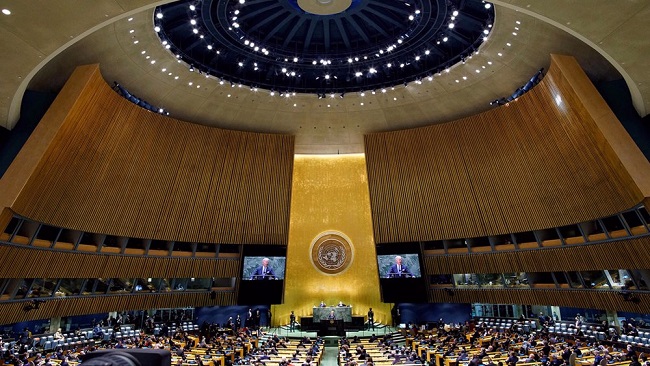20, June 2024
President Putin in Vietnam, vows deeper ties in visit criticised by US 0
The leaders of Vietnam and Russia have said they want to boost ties as the pair met in the Vietnamese capital of Hanoi.
Vietnamese President To Lam was full of praise for his Russian counterpart, Vladimir Putin, congratulating him on his recent re-election.
Mr Putin, in return, said strengthening a strategic partnership with the south-east Asian country was one of Russia’s priorities.
His trip to Vietnam, which comes on the heels of his lavish visit to North Korea, is being interpreted as a demonstration of the diplomatic support Russia still enjoys in the region.
“Congratulations to our comrade for receiving overwhelming support during the recent presidential election, underlining the confidence of the Russian people,” President Lam said after Mr Putin was given a red carpet welcome.
The United States has criticised the visit for giving a platform for President Putin to promote his war of aggression in Ukraine.
Vietnam still values the historic ties it has with Russia even as it works to improve its relationship with Europe and the US.
Looming over a small park in Ba Dinh, Hanoi’s political quarter, a five-meter high statue of Lenin depicts the Russian revolutionary in heroic pose. On his birthday every year a delegation of senior Vietnamese officials solemnly lay flowers and bow their heads before the statue, a gift from Russia when it was still the Soviet Union.
Vietnam’s ties to Russia are close and go back many decades, to the vital military, economic and diplomatic support given by the Soviet Union to the new communist state in North Vietnam in the 1950s.
Vietnam has described their relationship as “filled with loyalty and gratitude”. After Vietnam invaded Cambodia in 1978 to throw out the murderous Khmer Rouge regime, it was isolated and sanctioned by China and the West, and depended heavily on Soviet assistance. Many older Vietnamese, including the powerful communist party secretary-general Nguyen Phu Trong, studied in Russia and learned the language.
Today Vietnam’s economy has been transformed by its integration into global markets. Russia has fallen far behind China, Asia, the US and Europe as a trading partner. But Vietnam still uses mainly Russian-made military equipment, and relies on partnerships with Russian oil companies for oil exploration in the South China Sea.
The invasion of Ukraine presented Vietnam with a diplomatic challenge, but one it has so far managed to meet. It has chosen to abstain on the various resolutions at the United Nations condemning Russia’s actions, yet maintained good relations with Ukraine and even sent some aid to Kyiv. They also share a legacy from the Soviet era; thousands of Vietnamese have worked and studied in Ukraine.
This is all in keeping with Vietnam’s long-held foreign policy principles of being friends with everyone but avoiding all formal alliances – what the communist party leadership now calls ‘bamboo diplomacy’, bending with the buffeting winds of great power rivalry without being forced to take sides.
It is why Vietnam has so readily upgraded its relations with the US, a country against which its older leaders fought a long and destructive war, in the interests of seeking lucrative markets for Vietnamese exports and balancing its close ties with its giant neighbour China.
The US has objected to President Putin’s official visit to Vietnam on the grounds that it undermines international efforts to isolate him, but it can hardly be surprised. Aside from the special historical links with Russia, public sentiment in Vietnam on the war in Ukraine is more ambivalent than in Europe.
There is some admiration for Putin as a strongman who defies the West, and scepticism, fuelled partly by social media commentary, of the US and European claims to be upholding international law.
This is also true in other Asian countries, where the Ukraine war is seen as a faraway crisis. In Thailand, for example, a historic military ally of the US which was on the opposite side to Russia during the Cold War, public opinion is just as divided as in Vietnam. Thais too value the even older links between its monarchy and the pre-revolutionary Tsars of Russia, and the Thai government maintains close ties with Russia today, valuing the contribution millions of Russians make to its tourist industry.
How long Vietnam maintains its camaraderie with Vladimir Putin is less clear. It is already seeking alternative sources of military equipment, but ending its current dependence on Russia will take years.
A series of high-level resignations inside the communist party recently suggest intense internal rivalries over the next generation of leaders, and, potentially, over which direction the country will take. But there is no talk yet of abandoning the ambition of being friends to all, and enemies of none.
Source: BBC


























25, June 2024
Wikileaks founder Assange freed after US plea deal 0
WikiLeaks founder Julian Assange has been released from a high-security British prison after he reached a plea deal with the US authorities that ends his 12-year legal battle and allows him to return home to Australia.
“Julian Assange is free,” Wikileaks said in a statement posted on social media platform X on Monday.
According to the statement, Assange left Belmarsh prison on Monday morning before being bailed by the UK High Court and boarding a flight and departing the UK that afternoon.
“This is the result of a global campaign that spanned grass-roots organizers, press freedom campaigners, legislators and leaders from across the political spectrum, all the way to the United Nations,” the statement said.
His plane landed in Bangkok on Tuesday, en-route to Saipan in the Northern Mariana Islands, a US territory in the Pacific Ocean, where he will appear at a court on Wednesday.
Under the plea deal, Assange agreed to plead guilty to a single charge of conspiring to obtain and disclose classified US national defense documents, according to filings in the US District Court for the Northern Mariana Islands.
In return, he will be sentenced to 62 months of time already served.
The hearing and sentencing together will take place in Saipan as Assange has refused to travel to the US mainland. Afterwards, he will return to Australia, according to the Wikileaks.
“Words cannot express our immense gratitude to YOU – yes YOU, who have all mobilized for years and years to make this come true,” his wife, Stella Assange, said in a post on X.
‘Harmful legal precedent’
Many press freedom advocates, however, have noted that criminally charging Assange represents a threat to free speech.
“While we welcome the end of his detention, the US’s pursuit of Assange has set a harmful legal precedent by opening the way for journalists to be tried under the Espionage Act if they receive classified material from whistleblowers,” Reuters cited Jodie Ginsberg, CEO of the Committee to Protect Journalists, as saying.
Assange, an Australian citizen, spent five years at the high-security Belmarsh Prison in southeast London, while fighting extradition to the United States, where he faced 18 criminal charges.
He faced prosecution in the United States over an alleged conspiracy to obtain and disclose secret military and diplomatic files in 2010 relating to the US wars in Afghanistan and Iraq.
Before going to prison, Assange spent seven years holed up in Ecuador’s London embassy to avoid extradition to Sweden, where he faced accusations of sexual assault which were later dropped.
He was eventually arrested on April 11, 2019, when Ecuador revoked his asylum.
WikiLeaks came into limelight in 2010 when it released hundreds of thousands of classified files and diplomatic cables.
In 2010, the Australian national published a series of leaks provided by US Army intelligence analyst Chelsea Manning, including about 750,000 classified military and diplomatic documents related to the Iraq and Afghanistan wars which exposed the US military’s crimes in these countries.
Assange’s prosecution has been widely criticized by press freedom and human rights groups who say that the journalist was being targeted for unveiling West’s crimes in Iraq and Afghanistan.
Source: Press TV